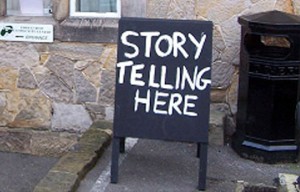Followers of Jesus should Experience Life in a way that truly makes “the things of this world grow strangely dim.” Yet so few seem to—why? Jesus did not come to take life away, but to bring us a full, overflowing, wellspring of Life that pleases the soul like nothing else on earth can (John 10:10, John 4:10-14). And then we are called to Bring Life to others—to whoever will receive this gift from God. Experiencing Life and Bringing Life.
But you cannot give what you don’t possess! I meet way too many Christian leaders who sell a product (Living Water) that they don’t drink. That’s a sure recipe for either burn out, hypocrisy, or horrible moral failure. At Gateway Church, we put together Spiritual Outcomes that help a person know what developmental outcomes to shoot for in different seasons, whether Discovering faith, Developing in faith, or Deepening that faith.
But as I look at all the possible outcomes, I’m convinced that three are foundational. Like a 3-legged stool, they form a steady base that can hold weight. So if you do nothing else, get these three spiritual disciplines as habits in your life, and help develop them in your kids and others.
The 3-Legged Stool:
- Staying Connected Moment by Moment – Jesus said, “Abide in me [stay connected] and you will bear much fruit, apart from you can do nothing.” (John 15:5) I hope it doesn’t take much convincing that this is important, since Jesus said that apart from this you can accomplish nothing of eternal significance! Many Christians know about this – it’s called by many names “walking in the Spirit,” “abiding in Christ,” “practicing his presence”—but I find few who truly make an effort to grow daily in greater moment-by-moment connection. Soul Revolution and the 60:60 Experiment (www.soulrevolution.net) were written to help us grow in actually doing the one thing Jesus said was most important. I recently came across a new book written on the same topic from a little different perspective, Present Perfect by Greg Boyd.
- Feeding on God’s Word – Jesus said we must also “stay connected” to his Words (the Bible reveals God’s will and ways), so that we will can know the truth and be set free. (John 8:31-32) He said we do not live by bread alone, but every Word that comes from God. (Matthew 4:4) David declares that the person who meditates on God’s Word day and night is like a tree planted by a stream. It always has an underground Source of nourishment, even in the drought years, so it’s leaves stay green. (Psalm 1:1-3) Over the last 25 years of ministry, I’ve observed that people who have developed regular habits of feeding themselves from God’s Word (daily reading a chapter, memorizing, meditating on its truths, studying it) keep growing. Just like physically growing up means we must feed ourselves daily or become unhealthy, so we must feed ourselves spiritually. Anyone who can read or listen to www.biblegateway.com read scripture to them can feed themselves. This idea that you need a Sunday service to “feed me” is the biggest lie that’s ever kept people stunted from growing!
- Confessing Community – If the evidence of truly growing to love God is how we love one another (1 John 4:7-9), then you can’t follow God’s Spirit or live out all the commands of Scripture if you are not in close proximity with a few other Christ-followers. If fact, Scripture warns us not to blow off regular meeting together. (Hebrews 10:24-25) Jesus spent most of his time developing 12, and poured even more time into Peter, James, and John. We must learn to live out all the “one anothers” of Scripture, supporting each other to grow up spiritually as we walk in total transparency together (walking in the light as it says in 1 John 1:5-9) and confessing our sins to God and each other because this heals us. (James 5:16)
Don’t try to sit on a 2-legged stool. You need to be developing in all three practices, and when you begin to develop others—start here! Help them develop in these three practices: Staying connected to God’s Spirit, feeding on God’s Word in daily ways, and living in loving, confessing community with a few other Christ-followers.
 The scripture makes it abundantly clear: “God saved you by his grace…[Why? Because] We are God’s masterpiece. He has created us anew in Christ Jesus, so we can do the good things he planned for us long ago.” (
The scripture makes it abundantly clear: “God saved you by his grace…[Why? Because] We are God’s masterpiece. He has created us anew in Christ Jesus, so we can do the good things he planned for us long ago.” ( Carlos grew up in church. He married a woman he met in the college ministry he belonged to, and today they have four kids that keep them busy. An advancing career brought them to your community, and they stopped you after service on Sunday to ask for more information. As a growing family, they are faithful in attending church and small group and they volunteer in Children’s ministry.
Carlos grew up in church. He married a woman he met in the college ministry he belonged to, and today they have four kids that keep them busy. An advancing career brought them to your community, and they stopped you after service on Sunday to ask for more information. As a growing family, they are faithful in attending church and small group and they volunteer in Children’s ministry.